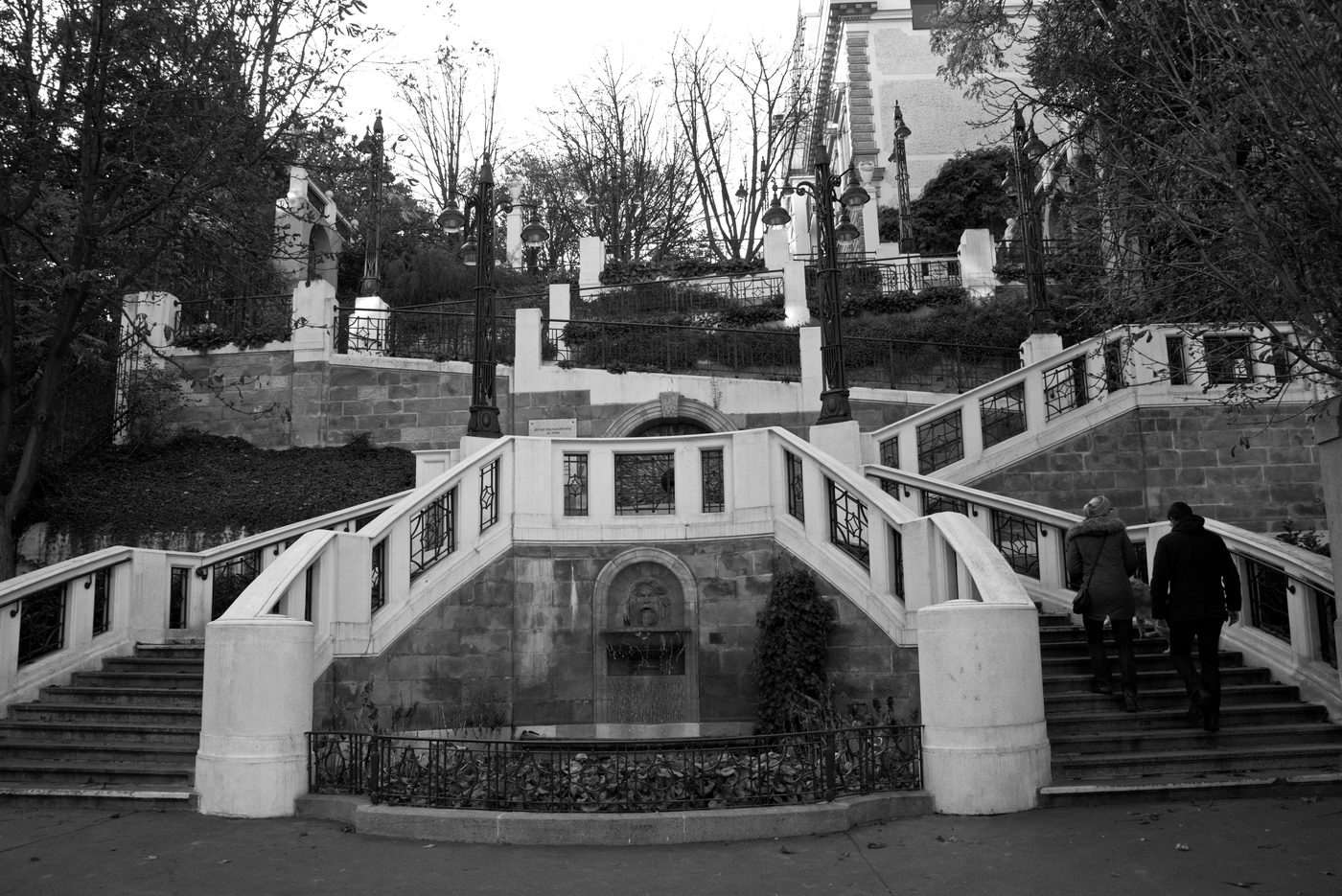Common Ground

Quite often I show people around some of the lesser-known corners of Vienna (I’m a Vienna Greeter, viennagreeters.com). My companions come from all over the world, and one of the things I’ve learnt is the need consider where my visitors come from, and to adjust the stories I tell accordingly.
For example, the Strudlhofstiege (pictured) – an elaborate set of steps in the north of the city. The Strudlhofstiege was used as a symbol in an eponymous state-of-the-nation novel by Heimito von Doderer, set in the vicinity before and after the first world war – one of the most important works of Austrian literature of the twentieth century. Yet very few people outside Austria have ever heard of it.
Or I speak of a place where executions used to be carried out – a thing of the distant past for me and Vienna – and my visitor tells me that 45 people were executed in her country last week.
There are many good things about this – not the executions, but the enforced adjustment of perspective. It’s easy to take your own knowledge and view of the world for granted, and assume that everyone shares the same outlook. It’s good to be compelled to look at the world from a different point of view.
But there is a downside. The sheer variety and amount of information and impressions and opinion that are available to us – and that we are daily bombarded with – has fragmented our common ground. Until the end of the last century, the anchors of most people’s lives were relatively local – a town, a region, a country. Now we have a whole world to choose from, and we form our own groups – the people and things that we find attractive, which might be drawn from all over the world.
We gain access to riches unimaginable to our grandparents. But we have also lost: we’ve lost a community where we could be sure of common structures of thought, assumption, ways of living – even if we didn’t like all of it.
In writing (or talking) we have a greater duty than ever to remember, not only that our readers may have different views, but also that many will not understand our references, or share our ideas of what’s important.
